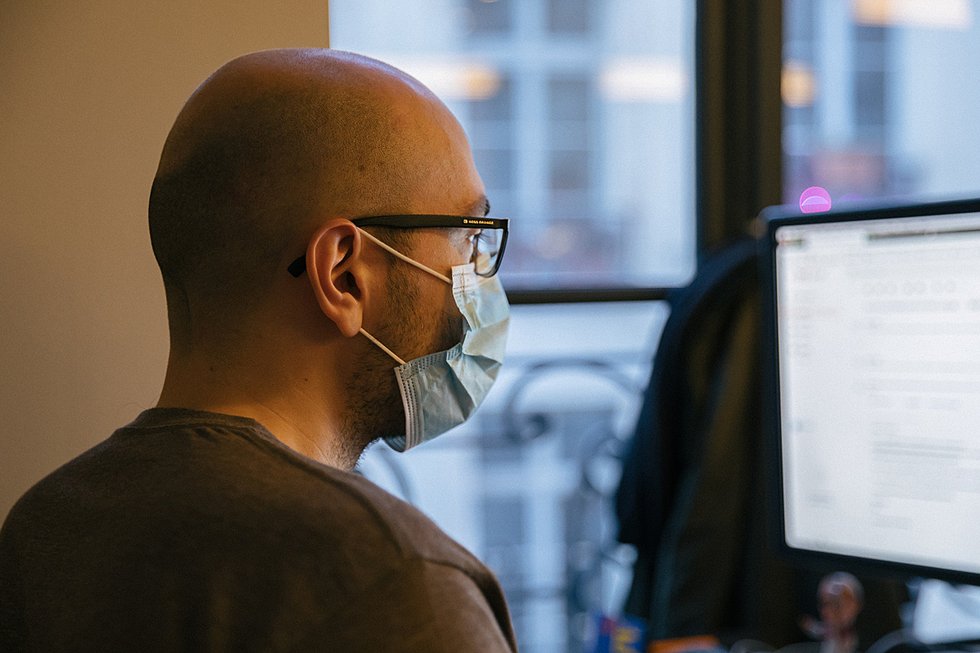Employee rights during the third lockdown
Jan 05, 2021
5 mins


Writer and editor
Another Covid-19 quarantine will result in many more employees losing their jobs while others will have to take time off due to sickness, self-isolation, or to care for loved ones through the third wave. In these unpredictable times, it’s important for us to know our rights. Here, Ruby Dinsmore, employment lawyer at Slater and Gordon, helps us trawl through the legislation to bring you an up-to-date guide for employees.
1. Can I still go to work?
It depends on what job you do. Government guidelines across all four nations of the UK state that you can go to work if you cannot effectively do your job from home. In terms of the new lockdown in England, this applies to those who work in critical national infrastructure, construction, or manufacturing, who the nation is relying on to keep the country functioning. Public sector employees in essential services, such as education and childcare, are also required to go to work, and it is also permitted to work in someone’s house for example as a tradesperson, a nanny, or a cleaner.
2. My boss is refusing to let me work from home although I believe it’s possible. What can I do?
Government guidance is to work from home if at all possible, but this does not mean employers are obliged to let staff work remotely. Ruby Dinsmore, an employment lawyer at Slater and Gordon, said, “This is guidance from the Government only and does not give you an absolute right to work from home. However, if an employer unreasonably refused the right to work from home in these circumstances, especially if you’re particularly at risk from the virus, it could be a breach of the implied term of trust and confidence.”
But what exactly does the term trust and confidence mean? “…it basically means that employers and employees shouldn’t behave in a way which might destroy or damage the working relationship,” said Dinsmore.
Talk to your boss about your situation. Explain the reasons why you wish to work from home and try to reach an agreement. Offer a trial run to see if you can make it work.
3. I need to self-isolate. Will I get paid?
Yes, you will. If you live, or are in a support bubble, with someone who is experiencing Covid-19 symptoms or has tested positive for the virus, have been told to self-isolate by NHS Test & Trace or the Covid-19 app, or have returned from overseas, your self-isolation period is 14 days, even if you feel well. Emergency legislation means that you are eligible for sick pay from the first day of self-isolation instead of day four. “Nobody should be penalized for doing the right thing,” Johnson told the House of Commons.
Dinsmore said not to forget company sick benefits either. “An employee or worker earning at least £118 a week can expect £95.85 per week of statutory sick pay for up to 28 weeks. This should be paid to you from day one of your self-isolation,” she said.
“Many employers have contractual sick pay agreements, meaning people could be entitled to much more, so check your contract and any staff handbook.”
A doctor’s note is not necessarily required. Instead, you can self-certify with an isolation note from the NHS website, which covers you for up to seven days.
4. I live with a vulnerable person. Do I still have to do my key worker job?
No, you don’t—but you won’t automatically get paid. “If someone is looking after a sick person they have the right to take dependence and family leave to care for them. However, this leave is unpaid. Again, this is something an employer should be mindful of and consider as part of their duty as a reasonable employer,” Dinsmore said.
Employers have a legal duty of care, which means they must do everything they reasonably can to ensure the safety and wellbeing of their employees.
5. I’ve lost my job. What are my rights?
It really depends on the circumstance: have you been made redundant or furloughed?
You’ve been furloughed
The Covid-19 Bill passed on March 25, 2020, offers coronavirus-specific options for employers to avoid mass job losses during the pandemic. “The Government has announced a range of measures to support businesses which aim to provide employers with an alternative to simply dismissing employees,” said Dinsmore.
“One of these is the Coronavirus Job Retention Scheme. Under this scheme all UK employers will be able to access support to continue paying part of the salary for those employees who would otherwise have been laid off during this crisis. All UK businesses are eligible and can apply for the scheme.”
This works as a temporary lay-off, and is known as being “furloughed”. Furloughed employees can receive up to 80% of their usual salary, up to £2,500 a month. The Government will also cover national insurance and pension contributions. From August there was more flexibility: furloughed workers were able to return to work part-time with employers being asked to pay towards their salaries. The scheme has recently been extended to the end of April 2021 to cover the third lockdown.
You’ve been made redundant
If you have been employed by a company for more than two years, you are entitled to statutory redundancy payments, which vary depending on your age and your length of service. Your employer may offer contractual redundancy pay, too. If you feel you have been unfairly selected, you may be able to claim an employment tribunal. You may also be entitled to claim a range of benefits, from Jobseeker’s Allowance to Universal Credit.
If you’ve lost your job, the Government has boosted benefits in response to Covid-19, including an increase in the standard allowance for Universal Credit and Working Tax Credit of £20 a week from April 6 for one year.
6. I’m really uncomfortable about going to work. Can I refuse?
Perhaps you do a job that feels high risk or you have a vulnerable person at home you feel anxious about. This is a time when you really need to talk to your boss.
“Employers should take your concerns seriously, and listen to and engage with concerns as they have a duty to protect their staff and provide a safe environment for them to work in,” said Dinsmore. “If you’re really afraid to be at work, they could offer you flexible working or the chance to take holiday or unpaid leave. You don’t have to agree to this, but you should explore options.”
You cannot simply refuse to go in though; you’d have to quit. “You cannot unreasonably refuse to work or you could face disciplinary action, but given the seriousness of the virus and the circumstances, this should be a very last resort. The Government has emphasized that employers should respect the need for people to stay at home in the circumstances,” she said.
Explain your circumstances, explore the options, and don’t make any rash decisions.
7. Does my employer have any responsibilities regarding health and safety?
Absolutely, says Dinsmore. “Employers have a duty of care to protect their employees’ health and safety.” Employers of key workers, or whose employees cannot work from home, have to follow strict Government guidelines to provide a safe environment and stop the virus spreading in the workplace.
These include basic hygiene rules, such as more frequent handwashing, especially after eating or handling food, blowing your nose, sneezing or coughing, and going into and out of the workplace.
Objects and surfaces that are touched regularly must be cleaned frequently. Moreover, employers must allow for social distancing by keeping staff at least two meters apart.
The Department of Trade and Foreign Affairs has advised against any non-essential travel overseas, so employees will not be obliged to travel for business.
Finally, your employer’s duty of care is wide-ranging and covers a company’s legal and ethical duty to prevent harm to staff, both physical and psychological, so this covers stress and mental wellbeing, too. This means your boss should provide communication channels for employees to raise any issues and consult employees on issues that concern them.
*Information correct as of November 5, 2020.
Photo: Welcome to the Jungle
Follow Welcome to the Jungle on Facebook, LinkedIn, and Instagram, and subscribe to our newsletter to get our latest articles every day!

More inspiration: Grow your career

Is a master's degree still worth it?
During a perfect storm of soaring tuition costs, automation and novel ways of online learning, is a master's degree still worthwhile?
Mar 23, 2023

Contextual intelligence: the skill that allows you to make better decisions
Adapting and understanding change is an important skill to advance your career. Here's how you can improve your decision-making skills.
Aug 31, 2022

How to prepare for a performance review
Whether you're looking for a promotion or some extra support, solid groundwork and preparation are key to a successful performance review.
Jun 02, 2022

"I quit!" Three workers share their stories
Quitting can be stressful in life; the uncertainty for what the future holds can be intimidating. Here are three stories ending in liberation.
Mar 16, 2022

Do you really need to get out of your comfort zone?
With the help of one of our experts, Mackenzie Childs, an organizational psychologist, cognitive behavioral coach and founder of Blink...
Feb 08, 2022
The newsletter that does the job
Want to keep up with the latest articles? Twice a week you can receive stories, jobs, and tips in your inbox.

Looking for your next job?
Over 200,000 people have found a job with Welcome to the Jungle.
Explore jobs